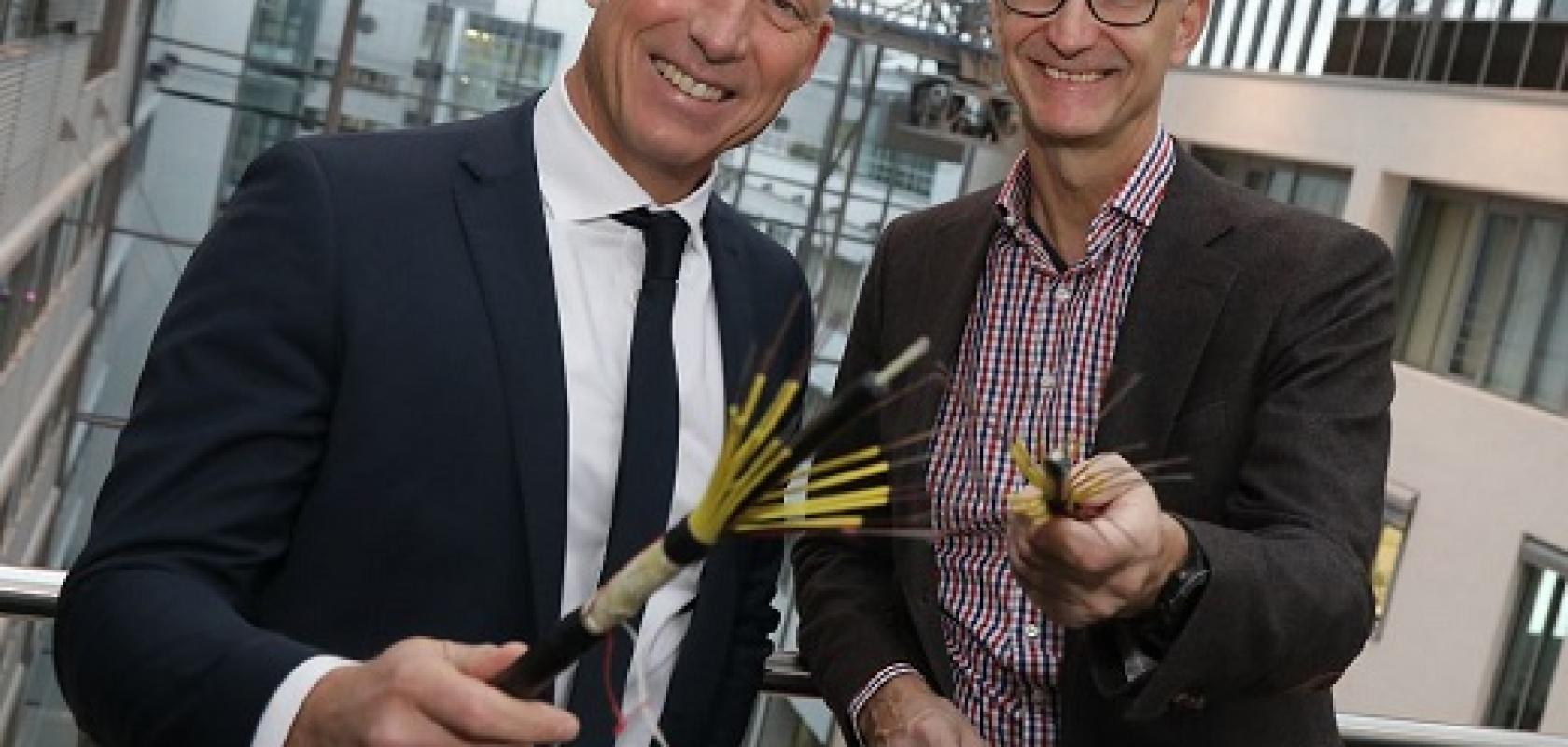Deutsche Telekom and utility company EWE plan to set up a network sharing joint venture that will spend €2 million to connect more than one million private households directly with optical fibre – and have signed a declaration of intent to that end.
Calling it “a major step toward the gigabit society in Germany”, the pair are planning to expand their fibre-optic networks in Germany's northwest region, and directly connect households to it using FTTB and FTTH. If the venture receives regulatory approval, operations scheduled to begin in mid-2018.
"By working with a strong partner, we will be able to bring state-of-the-art fast Internet access to even more people in our region," explained Michael Heidkamp, EWE director of sales and marketing. "This joint venture will enable us to make faster progress toward a complete-coverage fibre-optic network, and thereby to set new standards in state-of-the-art broadband infrastructure."
"The cooperation will make the fibre-optic expansion considerably more cost-effective, and it will help us make an important contribution to the region's infrastructure competition," noted Tim Höttges, Deutsche Telekom CEO.
Deutsche Telekom and EWE plan to work together to connect homes in the German states of Lower Saxony, North Rhine-Westphalia and Bremen, with a priority on rural areas. Each of the two partners will receive a 50 per cent stake in the planned joint venture. The new network, including both its street and house connections, will become the property of the new company, which will have its headquarters in northwest Germany. The partners will retain ownership of their respective networks built prior to the agreement.
The joint venture plans to make wholesale access available to third parties at commercial terms, a move that they hope will avoid regulation – and if it doesn’t then the venture could be stillborn. “The key is that FTTB and FTTH accesses will no longer be regulated. That is a central prerequisite for the joint project, and we are having talks with the Federal Network Agency,” Höttges added. The German Federal Cartel Office will now have to consider the proposal.
EWE and Deutsche Telekom, and other providers, will all be able to offer their own retail services over the new network, backed up by their own sales and marketing efforts. As a result, customers will be able to choose from a range of stable, ultrafast broadband products. The two companies expect to continue working separately to serve business customers.
Photo: Joint forces for fiber: EWE Board Member Michael Heidkamp (left) and Deutsche Telekom CEO Tim Höttges.


